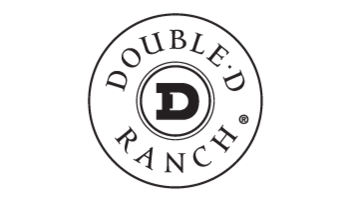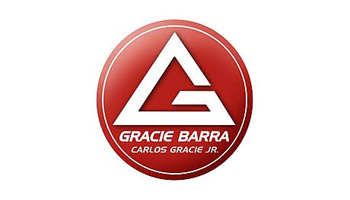Finding your niche is one of the most important steps to success in the world of business and marketing. Your niche will define your future, your success, and ultimately your happiness. So make it count! While you definitely want to go for something that you’re good at, you also need to make sure it’s something that you enjoy. Being passionate about your job will not only inspire you to keep at it, but that passion will also help grow your customer base and increase your success.
It should be the first step you take as well. After all, you need a starting stone right? Can’t be a successful business owner if you don’t know your niche! However, it can be an extremely overwhelming and daunting task. There are a ton of ideas out there and a lot of them have already been done. In some cases, the demand for such a task has already been addressed too. So it’s up to you to find something that not only works, and that you enjoy but something that isn’t oversaturated. Otherwise, you might get lost in the competition.
So how do you get over this early hurdle? Well, I’ve got some important tips and strategies that will help you find the perfect niche. And this niche won’t just make you peanuts either!
#1 What makes a good niche?

Before we get started with some of the tips, we should first talk about what makes something a good niche to invest your time in. Keep in mind that for every good one out there, there are a dozen bad ones. And obviously those are the ones that we want to avoid.
What is a niche?
“A small but profitable segment of a market suitable for focused attention by a marketer. Market nichesdo not exist by themselves, but are created by identifying needs or wants that are not being addressed by competitors, and by offering products that satisfy them.” –Business Dictionary
A niche is where there is demand but little supply. Think of it as your own little hidey hole in the market of your choice.
Keep in mind that a good niche will tick3 boxes:
✔High sales (demand)
✔ Low customer service requirements
✔ High profit margins
The first one is probably pretty obvious. You don’t want to pick something where the demand/sales aren’t that high. Even if it’s something that you absolutely love, at the end of the day you also have bills to pay.
Low customer service requirements is also something you want to keep an eye out for. Ideally, you want to “get in and get out”. The less time you spend interacting with your customer base, the more time you can invest in your business and yourself. Keep in mind that this doesn’t mean that you should completely avoid your customers or take a backseat! If your clients have questions, answer them. If you get emails about your products, respond to them. However, you should definitely look for options that limit your interactions. Time is money friend!
High profit margins is another no-brainer. You have bills to pay. And your niche is supposed to pay them. Ideally, you want to find something that requires as little time/effort as possible and has a big profit margin. You definitely don’t want to spend more than you’re making either! But you probably already knew that.
#2 Target market

You also want to consider your audience when looking for the perfect niche. There’s an audience for nearly every niche out there, but you want one that’s going to shell out more than just peanuts. So generally speaking, you want to aim for:
Upper middle class consumers who aren’t going for products with mass appeal.
These customers are looking for something specific and they’re more interested in luxury and quality than they are anything else. The upper middle class also has more money to spend than a lot of other customers so consider fields that appeal to this group. And since they’re interested in luxury/quality rather than brands, you can easily wiggle into their sights.
Keep in mind too that even if you find a small niche, chances are you’re going to have competition. So offering quality products or luxury goods are going to be the key to your success. Also, if by some marketing miracle you don’t have competition in your field, you still want to make sure you’re offering clients something of high quality. If you’re shelling out cheap goods and services, clients probably aren’t coming back… Even if you’re the only game in town.
The product of service musteither high quality or meet the demand for high quality. Need some help making sure your products are of value? Check out this linkfor suggestions on making sure that what you’re offering your clients is the best out there.
#3 Brand loyalty

Let me start by saying that brand loyalty is something that you want to avoid at all costs.
Don’t look to sell products where your competition relies on brand loyalty (e.g. smartphones, drink products such as Coca Cola, etc.). Why? Well, customers are loyal to the brand and since your company falls outside of that, then you’re going to have a hard time building a client base… If you can build one at all. Pretty simple.
But what if there isn’t a ton of competition in the field? Tempting, but you still need to avoid it like the plague. As I said, customers are going to be loyal to the brand of their choice. Even if there are only two major competitors and you think there’s room for you there isn’t.These two brands are already established and they have their customer base. And those customers are loyal to that specific brand, meaning they’re not interested in you. Even if your products are somehow better than the major competitors, you still shouldn’t expect the market to jump ship. Hence, brand loyalty.And some “newbie” isn’t going to dethrone them anytime soon.
So try to find a niche where customers aren’t concerned with brands, but rather they’re interested in the type of product. If your customer base cares more about whose brand is on their product than they do the quality of it, that niche isn’t for you.
#4 Take your time

Coming up with the absolute perfect niche isn’t going to happen overnight. It’s also not likely to be a “eureka” moment. Rather, it’s going to come about as the result of some in-depth research and brainstorming. So don’t worry if the perfect niche doesn’t come to you within a matter of hours (or days).
Also, don’t jump at the first “perfect niche” that comes to mind.While it might sound like a great idea at first, you need to sit with it for awhile. Once again, do some research and evaluate your idea.
· Does it tick the 3 boxes we talked about earlier?
· Is it in a field you’re passionate about?
· Is there brand loyalty there?
· What’s the market like?
· Is there room for you?
· Can you make a living off this idea?
So take your time! Do your research, talk to others in the field, go through the checklist, and really evaluate your niche for what it is. This is something that ideally you’re going to do for the rest of your life so don’t rush it.
#5 Remember that success takes time

Just like you won’t find the perfect niche overnight, success also won’t happen in the same time span. It can take awhile for your idea to take off and for customers to find you. Let me share a story with you:
My friend Alicia thought she’d found the perfect niche in the photography field: pet portraits. It was kind of a strange niche, but a lot of people seemed interested in it right off the bat. She also knew that there wasn’t a lot of competition out there. After some extensive research, Alicia launched her website and entered the field. Right away, she got a client and spent a few hours photographing their dog. They were extremely happy with the results and then… Nothing. Her inbox and cell phone sat empty for a long time.
Alicia was starting to become convinced that maybe this niche wasn’t that great at all. Then, an email appeared: “my friend recommended you! I love the photos you took of her dog and I’d like some done of my dog as well. She’s very close to passing away, so I’d like to commemorate her.” Photographing dogs that were sick or close to passing wasn’t exactly her original plan, but Alicia found a lot of success in it.
So be patient! Rome wasn’t built in a day and chances are your business isn’t going to be either. Your niche may also change slightly and it might take time for you to get your business off the ground. You can give yourself a bit of a leg up though by following some SEO tipsto boost your website traffic.
#6 Think outside the box

One of the biggest mistakes people make when it comes to looking for a niche is to opt for a very common one or something that is just “too out there”to meet any real demand.
Let’s talk about oversaturation first. There are plenty of areas out there that generate a lot of appeal because they feel very niche. However, in reality they tend to be way over-saturated. Photography is one of those areas. A lot of niches within this field are full to the point of bursting. Creative photography being one of the most full. This isn’t to say that you can’t make a living in the market, but you gotta think outside the box. Remember Alicia? Take a page out of her book and look for something unique.
How can you tell if the market is too saturated for you? Well, take a look at your competition. How much competition is there? If there are thousands, then yeah there’s probably no room for you. You can also reach out to others in the field and see how business is going for them. Is it slow? Steady?
Now, let’s talk about going “too far outside of the box.” Don’t think so far outside of it that you think yourself into a niche that only appeals to a small few (or none). Referring back to Alicia, pet photography appeals to a very small portion of people. There’s not a big demand for it and honestly, that demand could probably be filled by a regular photographer.
#7 Do your research

While we’ve covered this in a few of the other sections, I personally think this is one of the most important aspects of finding the perfect niche. And it’s also one that tends to get neglected.
The last thing you want to do is invest a lot of time, energy, and even money into a niche that isn’t going to work. This is where research comes in. Even if your niche is a completely brand new idea that nobody else has ever thought of before (doubtful, but play along) there is still research to be done:
· Once again, does your niche tick the 3 boxes we talked about earlier?
· Is brand loyalty going to be an issue?
· How’s the market in the field?
· What’s the customer base like? (Do they have money to spend? Are they interested in quality/luxury goods?)
· Is there enough room in the market for you?
· Is this a profitable field? (If not, then your niche probably won’t be profitable either).
· Will your niche be viable?
I’m sure you’ll come up with more questions that need to be answered, but these should be your starting point. Also don’t be afraid to ask for advice and input from others in the field. For the most part, small business owners are more than happy to answer questions and offer advice; after all they’ve been “at the bottom” before too. There are also forums, blogs, and tons of resources available out there so take advantage of them!
#8 Go into a field that you love (and understand)

Once again, your niche will ideally be the job you do for the rest of your life or at least a very good portion of it. So pick something in a field that you actually enjoy!
If you pick a field that you actually like, then not only are you more likely to keep at it, but you’re also more likely to put your heart and soul into your business. This means higher quality goods/services for your customers, repeat clients, and a good amount of success. It also means that instead of waking up every morning with the “great, another day of work” sentiment in the back of your mind, you’ll wake excited for each new project.
However, don’t go into a field that you don’t understand at all; even if it’s something that looks interesting to you. Coding might really appeal to you and while there’s a high demand out there for coders, this market won’t benefit you if you can’t code. Sure, you can learn but you’ll want to do that before you enter the market. Your niche should also be something that you’re good at. Sure, you can probably pick up coding pretty fast, but will you be able to solve difficult problems that require more than just a basic understanding of the field?
Your clients aren’t guinea pigs that you get to practice on; you should deliver goods and services that you understand.
So ideally your niche will be in a field that you’re good at as well as enjoy.
#9 Test your idea

This is another area that a lot of people neglect and that’s unfortunate. Maybe it’s the thought of diving headfirst into an exciting new field that causes their brain to forget this crucial step or maybe they don’t think it’s that important. Well, I’m here to tell you that it’s crucial.
Once you’re armed with all of the information and tools you need to launch your niche, you need to test it.How? It’s pretty simple. One way you can do this is by setting up a landing page for pre-sales of the services or products that you’re working on. You can then drive your traffic to this page via paid advertising. It’ll cost you a bit more upfront, but the feedback you get is invaluable. You can see how much demand there is for your products/services without investing a ton of resources.
But what happens if you don’tget pre-sales? Well, this doesn’t necessarily mean that it’s time to hang up your hat. Your niche might still be valuable, but you can use this insight to see where you essentially “went wrong.” Maybe your messaging is off, your offer isn’t that enticing, you need more advertising, or your niche needs to be refined. “By leveraging the A/B split testing, you can optimize conversions and find out whether or not there is anything stopping your target market from taking action.” –Thomas Smale
You can check more of Smale’s tips here.
#10 Don’t be afraid to alter your niche

Okay, so you’ve followed the above tips. You’ve found a good niche that you think will be successful in a profitable market and you’re ready to begin your adventure. However, you end up going weeks and maybe even months without much business. What do you do now?
Remember Alicia? She entered a pretty full market but found a unique niche. However, her niche was a little too unique. She didn’t attract much business at first until she got a client that showed her a brand new path in a field that she was passionate about. There wasn’t a ton of demand for pet photography, but commemorative pet photography was something with quite a bit of demand. Sure, those clients probably could have hired any other photographer, but they were after someone who was sensitive, professional, good with animals, and good with photography. Alicia fit that profile to a T.
In other words, your ideal niche might be the one you have in mind with a few alterations.
And even if your niche is successful, don’t be afraid to switch it up or alter it a little bit. You never know what changes will boost your business! -J


















